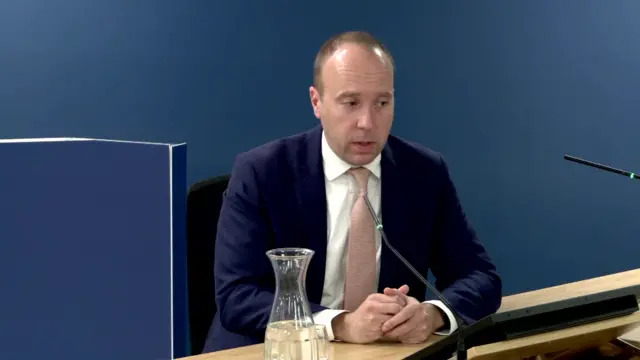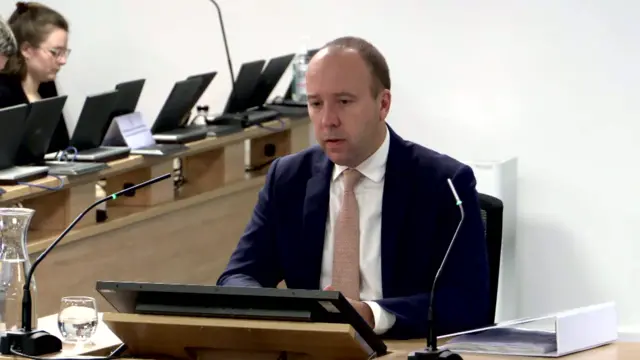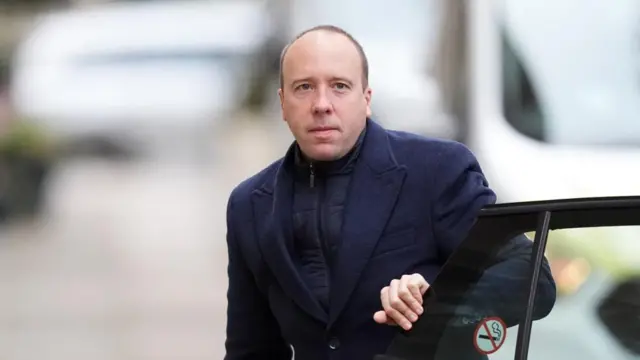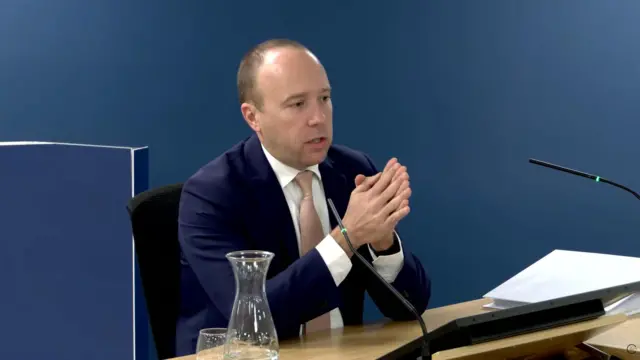Hancock's questions come to an endpublished at 11:53 GMT 22 November 2024
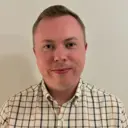 Matt Spivey
Matt Spivey
Live page editor
And, with that, Matt Hancock's questioning has come to an end for today. The Covid inquiry will continue from noon on Monday.
For a recap of the key questions from this morning, Senior Health reporter Jim Reed says these targeted questions were to be expected.
Health editor Hugh Pym, who has been at the inquiry this morning, says Hancock touched on highly contentious issue.
We're wrapping up our live coverage now, but if you want to have a deeper look at the Covid inquiry before it resumes on Monday, we have this explainer.

